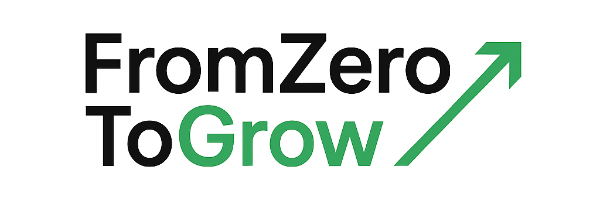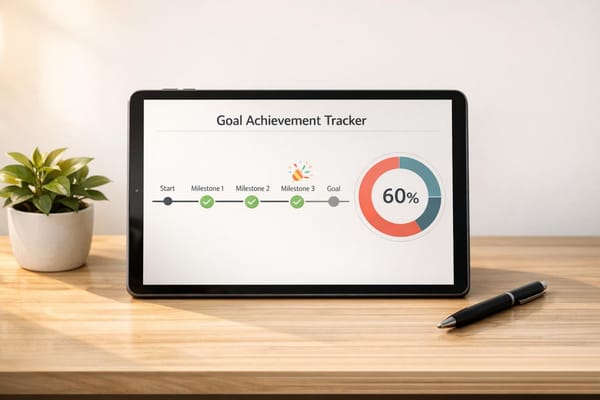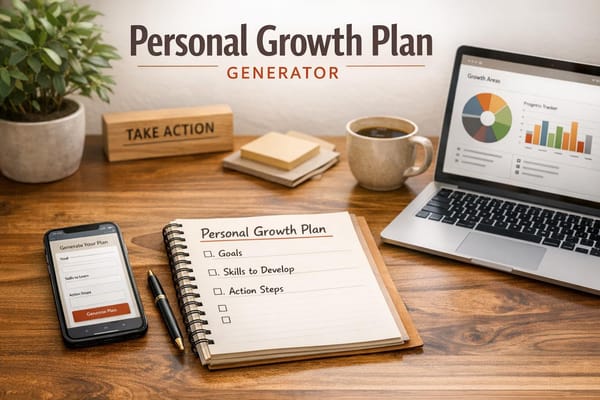Ultimate Guide to Networking for Introverts
Introverts can thrive in networking by leveraging their strengths, preparing effectively, and focusing on meaningful connections without feeling overwhelmed.

Networking can feel overwhelming for introverts, especially when it involves large crowds or small talk. However, introverts excel at creating meaningful connections through deep listening and thoughtful conversations. This guide focuses on practical tips to help introverts build strong professional relationships without stepping out of their comfort zone.
Key Takeaways:
- Leverage Your Strengths: Introverts thrive in one-on-one conversations and active listening, which leads to deeper connections.
- Prepare Ahead: Research events, set realistic goals (e.g., aim for 2-3 meaningful conversations), and practice conversation starters.
- Choose Comfort: Opt for smaller groups or quieter spaces at events, and consider virtual networking for less pressure.
- Follow Up: Personalize follow-ups by referencing past conversations and maintain relationships through regular, thoughtful communication.
By focusing on quality over quantity, introverts can create a network that feels natural and supportive while opening doors to new opportunities.
Networking for People Who Hate Networking (Built for Introverts)
How Introversion Affects Networking
Recognizing how your introverted nature shapes your approach to networking is a key step in forming meaningful professional relationships. While networking might feel a bit daunting initially, understanding your natural tendencies and strengths can completely reshape your perspective. Let’s dive into what makes introversion unique and how it can be a powerful asset in networking.
What It Means to Be an Introvert
Introversion isn’t about being shy or avoiding social situations - it’s more about how you process information and recharge your energy. Introverts thrive in deep, meaningful conversations rather than surface-level small talk. You might find that spending time alone or with a small group helps you recharge, while large crowds can feel draining. Your tendency to take time before responding often results in thoughtful and impactful contributions during conversations.
It’s also important to distinguish introversion from shyness. Shyness is rooted in a fear of judgment, whereas introversion simply reflects your preferences for interaction and reflection. You can be a confident introvert who genuinely enjoys meeting people, especially in smaller, more personal settings.
Why Introverts Need to Network
Understanding your introverted tendencies doesn’t mean avoiding networking - it highlights why building connections is so important. Networking can open doors to opportunities that might not be available otherwise. Many career advancements stem from personal connections, with some jobs never even making it to public listings. Establishing genuine relationships can provide you with insider knowledge, industry insights, and collaboration opportunities.
Networking also increases your visibility. Even if you’re highly skilled, staying in isolation can limit your ability to share your expertise with others. Through networking, you can showcase your knowledge, learn from others, and position yourself as a go-to resource in your field.
Beyond career growth, networking offers emotional and practical support. A trusted network can provide mentorship, advice, or even a sounding board when you’re facing tough decisions. These professional relationships often evolve into friendships, enriching both your work and personal life.
Natural Networking Strengths of Introverts
Your introverted qualities don’t just define who you are - they can also make you an effective networker. Deep listening and meaningful conversations are your superpowers when it comes to building authentic connections. By listening attentively and showing genuine interest, you can remember important details, making follow-ups more personal and impactful.
This approach allows you to notice subtleties others might miss. Whether it’s remembering someone’s professional goals or challenges they’ve shared, these small details create a strong foundation for future interactions.
You value quality over quantity in relationships, focusing on building a smaller, more supportive network rather than collecting a stack of business cards. This intentional approach often leads to lasting and reliable connections.
Empathy is another key strength. Your ability to make others feel heard and valued leaves a lasting impression, which fosters trust and deeper relationships. People remember how you made them feel during conversations, often leading to enduring professional bonds.
Additionally, your natural introspection and thoughtful decision-making help you use your time wisely. By carefully choosing which events to attend and which relationships to nurture, you can align your networking efforts with your personal and professional goals. This selective approach ensures that your efforts are both meaningful and effective.
Your ability to nurture connections over time and recall key details also strengthens trust and rapport. You’re not rushing to build relationships or expecting immediate results. Instead, you allow them to grow naturally, often leading to deeper, more genuine connections.
These strengths make introverts uniquely equipped to form meaningful professional relationships. In the next section, we’ll explore practical strategies to help you make the most of these abilities in your networking journey.
How to Prepare for Networking Events
Turning networking into a productive experience starts with preparation. By doing your homework and setting a clear plan, you can make the most of your time while staying true to your strengths. Here's how to get ready.
Research Events and Set Clear Goals
Start by learning everything you can about the event - its format, the speakers, topics, and even the attendee list. This groundwork helps you identify key opportunities and pinpoint individuals or companies you'd like to connect with.
Instead of trying to collect as many business cards as possible, aim for three meaningful conversations. Plan your schedule by noting sessions that interest you and when networking breaks are scheduled. Arriving early, when the venue is quieter, can also make starting conversations feel less intimidating.
Prepare Conversation Starters
Practice a short, one-minute introduction about your career, current role, and future goals. Having this ready will make introductions smoother and more confident.
Think about specific questions that can spark engaging conversations. For example, you could ask, "What did you always wish to do?" or "Do you have a daily routine in your role?". These kinds of questions move past small talk and invite more meaningful exchanges.
"So for an introvert to enjoy an interaction it has to be worth it - and small talk is never worth it."
- Patty Azzarello, CEO/Business Advisor
Focus on open-ended questions that encourage others to share their experiences. Patty Azzarello suggests asking things like, "What brings you here?" or "What are you hoping to learn at this conference?". If someone mentions their work or a hobby, follow up with, "That's interesting, how did you get started with that?".
You can also use the event itself as a natural conversation starter. Mentioning a session topic, a speaker's insights, or even shared experiences can lead to easy discussions. Growth Marketing professional Misty Ladner offers seasonal ideas like, "Where did you go on vacation this summer/winter?" or "What’s an interesting challenge you’re working on right now?".
Genuine compliments can also break the ice. Meaghan Maybee from pc/nametag suggests lines like, "I love your tie! Where did you get it?" or "I see you’re a dog lover. How many pets do you have?".
If you notice someone standing alone, consider approaching them. Rachel Tornheim recommends saying, "You look like you could use someone to talk to!", while Patty Azzarello suggests a more playful opener like, "Do you enjoy events like these, or do you hate them?".
Reduce Pre-Event Anxiety
Feeling nervous? Try visualizing successful interactions and setting a specific time limit for how long you'll stay. Breathing exercises can also help - inhale for four counts, then exhale for six counts to calm your nerves. Attending with a friend or colleague can provide extra support and make introductions easier. And don’t forget to plan some downtime after the event to recharge your energy for what’s next.
Networking Strategies That Work for Introverts
Let’s turn your natural tendencies into practical steps that align with your strengths. These strategies are designed to help you build connections while staying true to yourself.
Focus on One-on-One Conversations
Big group settings can feel draining, but smaller, more personal interactions are often where introverts shine. Instead of trying to navigate a crowded room, aim for meaningful one-on-one conversations. These settings allow you to showcase your thoughtful personality and form stronger, more genuine connections.
If the environment feels overwhelming, suggest moving to a quieter spot. For example, you could say, "It’s a bit noisy here. Would you like to grab a coffee and chat somewhere quieter?" By emphasizing quality over quantity, you’ll create connections that feel more authentic.
Once you’re in a more comfortable setting, lean into your natural listening skills to deepen the conversation.
Use Active Listening to Your Advantage
One of your greatest strengths as an introvert is your ability to listen attentively. While others might be eager to dominate the conversation, you can stand out by focusing on what the other person is saying.
"One side of the conversation is speaking. The other side, also critical for job search, is listening. Introverts can be very, very good at listening, naturally. Use good active listening skills to build relationships and gather information that can help your job search."
– Wendy Gelberg, Career Navigator at JVS CareerSolution
Show that you’re engaged through steady eye contact, a slight forward lean, and occasional nods. Avoid distractions like glancing around the room or crossing your arms, as these can signal disinterest. Instead of worrying about how to respond, focus on truly understanding the other person’s perspective.
Ask thoughtful follow-up questions to keep the conversation flowing, such as, "That sounds like a tough challenge - how did you handle it?" or "What’s been the most rewarding part of that project?" Taking brief notes - whether on a business card or your phone - can help you remember key details for future follow-ups.
Look for ways to offer meaningful help based on what you learn. Whether it’s recommending a resource or connecting them with someone who can assist, these small gestures leave a lasting impression and show that you’re someone who genuinely adds value.
Network Online Through Digital Platforms
For introverts, online networking can be a game-changer. It gives you the chance to connect thoughtfully and at your own pace, without the pressure of in-person interactions.
Start by polishing your LinkedIn profile. Use a professional headshot and craft a clear summary that highlights your skills and goals. Join industry-specific groups to engage in discussions, share insights, and build credibility - all from the comfort of your own space.
When reaching out to new connections, personalize your messages. Reference something specific from their profile or recent activity. For example: "Hi Sarah, I really enjoyed your post on sustainable marketing trends. I’d love to hear more about your thoughts on green initiatives in the industry."
Consistency is key. Stay active by commenting on posts, sharing relevant articles with your insights, and congratulating others on their achievements. Virtual events, webinars, and online conferences also offer great opportunities to meet people without the intensity of face-to-face networking. Focus on one or two platforms where your audience is most active to make the process more manageable and effective.
How to Handle Different Types of Networking Events
Once you've got your networking basics down, it’s important to tailor your approach to the type of event you’re attending. Whether in-person or virtual, each format has its own dynamics, and knowing how to navigate them can help you make the most of every opportunity.
Tips for In-Person Networking Events
Arrive early. The first 15–20 minutes are usually quieter, giving you time to settle in and get comfortable. Plus, it’s easier to strike up conversations before the room fills up.
Seek out smaller groups. It’s less intimidating to join a pair or trio than to break into a large circle. You can also approach someone standing alone - they’re often looking for a conversation too.
Bring a buddy if you can. Attending with a colleague or friend can ease nerves and make introductions feel more natural. You can support each other, take turns leading conversations, and step in when one of you needs a break.
Head to the food or drink area. These spots are naturally more casual, making them great places to start conversations about the event, the venue, or even the refreshments.
Making Virtual Networking Work for You
Virtual events come with unique perks, especially for introverts. You can participate from a comfortable setting, manage your energy better, and even control how you present yourself on camera.
Test your tech ahead of time. Make sure your camera, microphone, and internet connection are working smoothly. Have a backup plan, like dialing in by phone, just in case.
Use the chat feature to ease into conversations. Typing a thoughtful comment or asking a question in the chat can be less intimidating than jumping straight into verbal discussions. You can also send private messages to speakers or other attendees to connect on a smaller scale.
Engage in breakout rooms. These smaller groups, often with just 3-5 people, create a more relaxed space for meaningful conversations.
Set up your space. A quiet environment with good lighting and a professional-looking background will help you feel more confident and make a positive impression.
Follow up quickly. Virtual interactions can feel less personal, so sending a thoughtful follow-up message soon after the event helps keep the connection alive.
In-Person vs Virtual Networking: Which Is Better?
Each format has its own strengths and challenges. Choosing the right one depends on your goals and comfort level.
| Aspect | In-Person Networking | Virtual Networking |
|---|---|---|
| Energy Management | Can be draining | Easier to manage |
| Conversation Quality | More personal and engaging | May feel less intimate |
| Control Over Environment | Limited control; adapt to venue | Full control over your setup |
| Networking Reach | Local connections | Global opportunities |
| Follow-up Ease | Face-to-face memory aids follow-up | Digital tools simplify follow-up |
| Multitasking Ability | Requires full focus | Can take notes or research discreetly |
| Social Cues | Full body language visible | Limited to facial expressions |
| Technical Barriers | None | Potential tech issues |
Choose in-person events when you’re looking to build local relationships, prefer deeper face-to-face interaction, or feel ready for the energy of a live setting.
Opt for virtual events if you’re new to networking, want to connect beyond your geographic area, or prefer the flexibility of controlling your environment.
Many successful networkers combine the two formats. For example, they might attend virtual events to identify interesting people or opportunities, then follow up with in-person coffee meetings or smaller gatherings. This hybrid strategy allows you to play to your strengths while expanding your reach and building meaningful connections.
How to Follow Up and Build Long-Term Relationships
Once you've made those initial connections through meaningful conversations, the next step is nurturing and strengthening them. For introverts, this stage can be a great opportunity to develop deeper, more authentic relationships by focusing on thoughtful follow-ups and consistent communication.
How to Follow Up After Meeting Someone
- Mention something specific from your conversation to make your follow-up personal and memorable.
- Keep your message short - express gratitude for their time and suggest a clear next step to keep the connection moving forward.
Ways to Stay Connected Over Time
- Stay in touch regularly with key contacts through well-timed messages.
- Share helpful resources or insights when they align with a contact's interests or needs. For instance, if you come across an article that relates to a project they mentioned, send it along with a quick note explaining why it made you think of them.
- Facilitate introductions when it makes sense. Connecting two people who could benefit from knowing each other highlights your role as a connector and strengthens your network. These small, consistent actions can help build lasting, meaningful relationships.
Why Being Genuine and Consistent Matters
Consistency builds trust. Showing up reliably over time helps establish a solid foundation for professional relationships.
Authenticity deepens connections. Having meaningful conversations and practicing active listening fosters genuine bonds that are more likely to stand the test of time.
Quality over quantity wins in the long run. Focusing on a smaller group of meaningful connections allows you to invest more deeply without feeling overwhelmed. It’s often less draining than trying to maintain a large network of superficial relationships. When you consistently bring your authentic self and add value to others’ lives, these connections naturally evolve into self-sustaining relationships that lead to opportunities and collaborations.
Key Takeaways for Introverted Networkers
Networking as an introvert isn’t about trying to mimic extroverted behaviors; it’s about leaning into your natural strengths. Thoughtful conversation and active listening are tools that allow you to build connections that feel genuine and meaningful. These qualities make introversion a true asset when it comes to networking. Instead of rushing through countless introductions, you’re more likely to create trust and lay the groundwork for professional relationships that last.
Rather than aiming to meet everyone in the room, prioritize a handful of substantial interactions. This approach often leads to meaningful follow-ups and deeper connections over time.
The key to solidifying these relationships is consistent and personalized follow-up. By staying authentic and showing genuine interest, you can nurture trust and build professional bonds that truly matter.
FAQs
How can introverts ease their fear of networking and make it feel more comfortable?
Networking can feel overwhelming for introverts, but a little preparation can go a long way in making it more manageable. Start by doing some research on who will be attending. Knowing a bit about their background can help you feel more confident and give you a few conversation topics to lean on. Practicing some simple icebreakers beforehand can also make starting conversations less daunting. Instead of trying to meet everyone, set a goal to connect with just a handful of people - quality over quantity is key.
At the event, don’t hesitate to step away for a moment to recharge if you’re feeling drained. Remember, networking is a skill that gets easier with practice. Over time, these small steps can help the process feel less intimidating and even, dare we say, enjoyable.
What are some easy conversation starters for introverts at networking events?
Starting conversations as an introvert doesn’t have to feel overwhelming. A good way to ease into it is by asking open-ended questions that invite others to share more about themselves. For instance, you could say, "What brought you to this event?" or "How did you get started in your career?" These types of questions encourage thoughtful answers and create a natural flow for the conversation.
Another approach is to comment on something around you, like saying, "This venue has such a great vibe, don’t you think?" You can also ask lighthearted questions about hobbies or interests to keep things casual. These methods help take the pressure off and make connecting with others feel more natural and relaxed.
What are the best ways for introverts to maintain professional connections after a networking event?
To keep those professional connections alive after a networking event, start with a personalized follow-up. A thoughtful email or LinkedIn message works well - just make sure to reference something specific you talked about. This small detail can make your message stand out and feel more personal.
For building relationships over the long haul, it helps to have a simple plan. You might schedule occasional one-on-one chats, share updates or articles that match their interests, or engage with their posts online. The key is to focus on quality over quantity - a handful of meaningful connections can often be more fulfilling, especially for introverts.
Most importantly, keep your communication genuine. When you're authentic, trust builds naturally, and those professional relationships are more likely to thrive over time.





